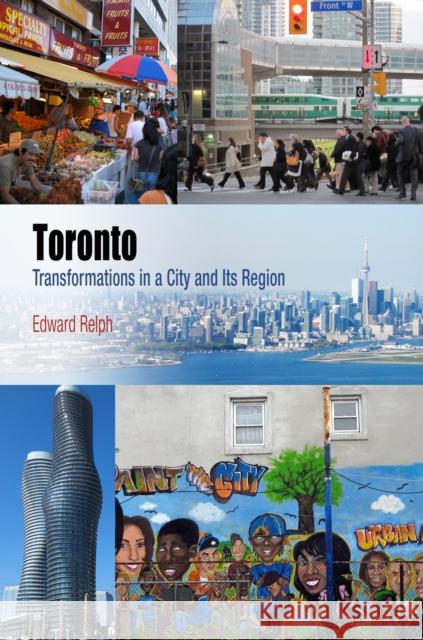Toronto: Transformations in a City and Its Region » książka
Toronto: Transformations in a City and Its Region
ISBN-13: 9780812245424 / Angielski / Twarda / 2013 / 216 str.
Extending a hundred miles across south-central Ontario, Toronto is the fifth largest metropolitan area in North America, with the highest population density and the busiest expressway. At its core old Toronto consists of walkable neighborhoods and a financial district deeply connected to the global economy. Newer parts of the region have downtown centers linked by networks of arterial roads and expressways, employment districts with most of the region's jobs, and ethnically diverse suburbs where English is a minority language. About half the population is foreign-born the highest proportion in the developed world. Population growth because of immigration almost three million in thirty years shows few signs of abating, but recently implemented regional strategies aim to contain future urban expansion within a greenbelt and to accommodate growth by increasing densities in designated urban centers served by public transit.
"Toronto: Transformations in a City and Its Region" traces the city's development from a British colonial outpost established in 1793 to the multicultural, polycentric metropolitan region of today. Though the original grid survey and much of the streetcar city created a century ago have endured, they have been supplemented by remarkable changes over the past fifty years in the context of economic and social globalization. Geographer Edward Relph's broad-stroke portrait of the urban region draws on the ideas of two renowned Torontonians Jane Jacobs and Marshall McLuhan to provide an interpretation of how its current forms and landscapes came to be as they are, the values they embody, and how they may change once again."











